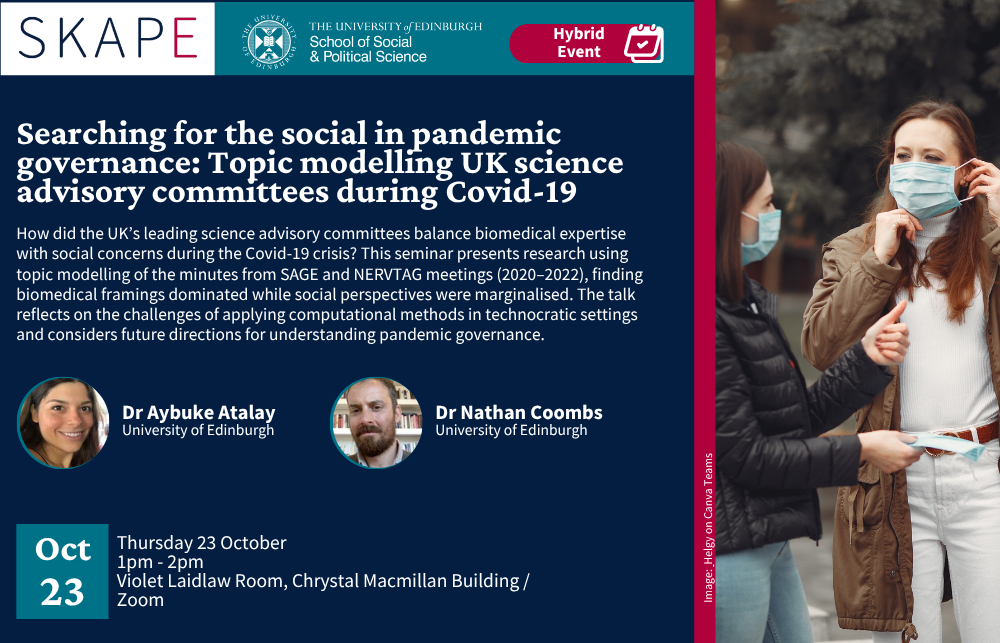Topic modelling UK science advisory committees during Covid-19
Location
University of Edinburgh - Violet Laidlaw Room Violet Laidlaw Room, 6th Floor, Chrystal Macmillan Building
The Covid-19 pandemic challenged pandemic preparedness strategy. Decades of planning were abandoned as governments followed the lead of Chinese authorities in implementing lockdowns, social distancing, and other novel non-pharmaceutical interventions to prevent healthcare systems being overwhelmed. Among the criticisms of governmental responses to Covid-19 include the suggestion that they tended towards a narrow biomedical scientism, eschewing cost-benefit analyses, excluding social concerns, and inviting no input by social scientists. However, there remains little systematic evidence to support these contentions. We put these claims to the test by applying Latent Dirichlet Allocation (LDA) topic modelling to the minutes of 168 meetings held between 2020 and 2022 by two of the UK’s most influential science advisory committees during the pandemic: the Science Advisory Group on Emergencies (SAGE) and the New and Emerging Respiratory Virus Threats Advisory Group (NERTAG). In a result exceeding our expectations, we find that the LDA model struggled to identify a distinct set of social considerations within these discussions, even after manually optimising the number of topics in an effort to surface such themes. We theorise the dominance of biomedical topics in the committees’ discussions as a self-reinforcing effect of framing and cognition, supporting criticisms that SAGE and related committees operated as an ‘epistemic bubble’ in which alternative approaches to making sense of the pandemic were marginalised in favour of epidemiological modelling. We conclude with methodological reflections on the limitations of applying topic modelling in highly technocratic contexts as well as considerations of future research directions for the project.